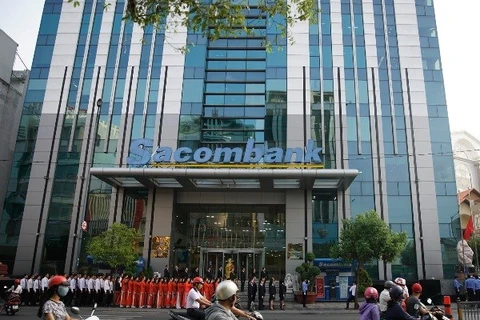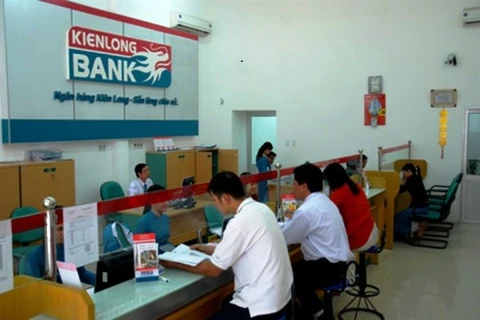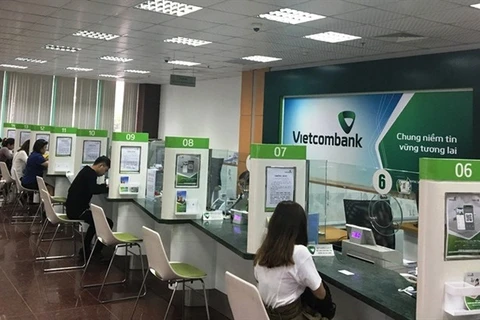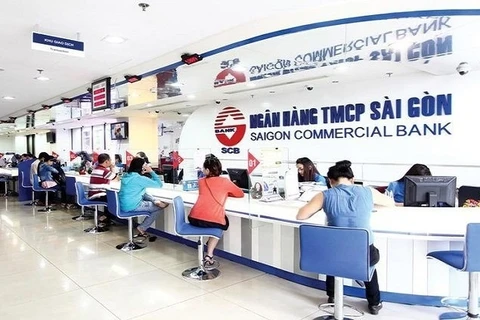 Cross-ownership between banks and enterprises remains only at the Asia Commercial Bank (ACB) and the Hoa Phat-A Chau Real Estate Company. (Photo: VNA)
Cross-ownership between banks and enterprises remains only at the Asia Commercial Bank (ACB) and the Hoa Phat-A Chau Real Estate Company. (Photo: VNA) Hanoi (VNS/VNA) - Cross-ownership in the country’s banking system had almost been eliminated, a recent report by the State Bank of Vietnam (SBV) showed.
According to the report, the number of credit institutions with direct cross-ownership had decreased from seven in 2012 to none.
Direct share ownership between banks and enterprises had also fallen from 56 pairs in 2012 to one: the Asia Commercial Bank (ACB) with the Hoa Phat-A Chau Real Estate Company.
Industry insiders attributed the improvement to the SBV’s strict regulations on cross-ownership over the past year. Under these regulations, harsh penalties will be imposed on banks that fail to bring their ownership in other credit institutions to below 5 percent before June 30 this year. Penalties include possible rejection of bank proposals regarding top positions, such as members of the board of directors and supervisory boards, as well as CEO.
Major shareholders in credit institutions and their relatives will not be allowed to hold 5 percent or more of charter capital in another bank from next year.
Major shareholders and their relatives are also prohibited from increasing their stake holdings in any credit institutions in any form, except for special cases regulated by the central bank.
In addition, credit institutions are not permitted to lend to major shareholders and their relatives until the shareholders meet regulations on holding less than 5 percent of another credit institution’s charter capital.
Non-compliant shareholders will also have their dividend rights and right to serve on the board of directors suspended, and will be prohibited from increasing their stake in their respective banks.
The revised Law on Credit Institutions, which was passed by the National Assembly and came into effect last year, has also prohibited bank leaders from taking up senior positions in other businesses. Prior to the central bank’s new regulation, it was a common practice for a person to own both a bank and a business.
Besides, the favourable stock market and the country’s positive economic growth have helped large banks step up divestment from other financial institutions to meet the central bank’s regulations.
Expert Bui Quang Tin said the strict regulations on cross-ownership were necessary, as the practice had a negative impact on the banking system, evident in the high ratio of non-performing loans.
Due to cross-ownership, many banks increased their charter capital to several trillion of VND; however, the source of the capital was unreal as it came from loans taken from other banks.-VNS/VNA
VNA
























